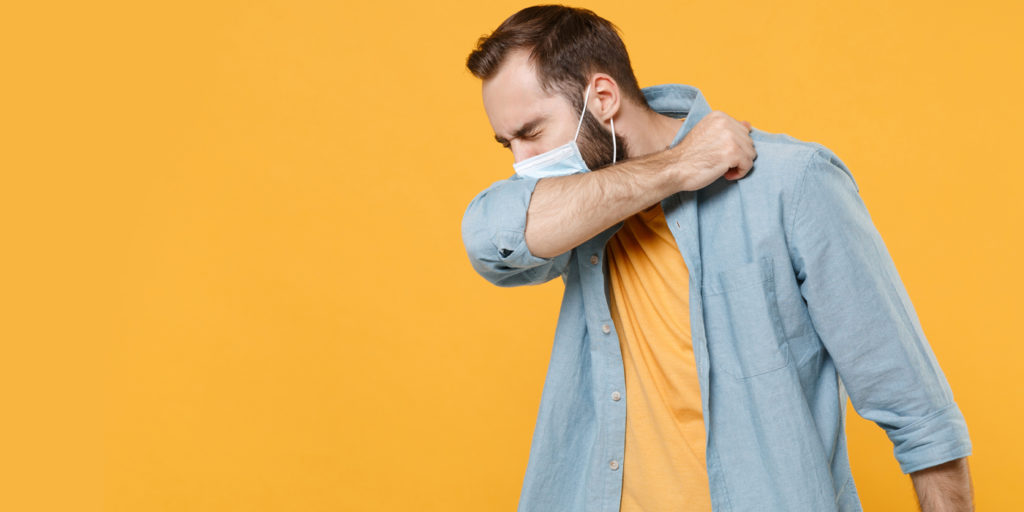A lot of people have commented about 2020 being a “dumpster fire,” “disaster” and other terms not fit to repeat. Many businesses in all industries were shut down for several months, and some were forced to close indefinitely. It was a difficult year in many aspects for most people across the country. Collision repair shops, considered essential businesses, stayed open in most cases but had to adapt to new policies and practices.
Though it’s a new year, the coronavirus is far from behind us. But in an effort to look forward in 2021, we’re going to focus on some health and safety habits that were brought to the forefront in 2020 – many of which we would like to see stick around in the workplace.
Healthy Habits
Consider retaining (and encouraging) these OSHA-approved habits in your workplace:
Promoting frequent and thorough handwashing. It has always been and will always be a good idea to wash your hands properly after touching common surfaces, using the restroom and before handling food. Proper handwashing means using clean water and scrubbing for at least 20 seconds. Just as important as encouraging handwashing habits is providing a place for workers, customers and visitors to wash their hands. In the absence of a handwashing area in the immediate area, be sure to provide alcohol-based hand sanitizer containing at least 60% alcohol. Now that people have made it a habit to use hand sanitizer when they don’t have access to a sink, it’s a good idea to have sanitizer available for both employees and customers in several places throughout your shop.
Encouraging workers to stay home when they’re sick. In many cases, workers don’t want to take a sick day simply because sick time isn’t offered at their workplace and they don’t want to lose pay. But in the interest of the health and safety of everyone in the shop, it’s a good idea for sick people to just stay home when they’re experiencing symptoms that may be contagious. Otherwise, one sick person can turn into several employees taking days off at the same time. Think about revising your sick day policies. This year, many employees had to stay home to care for sick children or family members. Though it’s not always feasible depending on your workplace, it’s important to re-evaluate policies to allow for unusual circumstances. Be aware of employees’ concerns about pay, leave, safety and health and other issues. This personal touch can pay off in the long run for your shop because you’ll retain valuable people who recognize that your shop puts employees first.
Reminding about respiratory etiquette. It’s always a good idea to cover coughs and sneezes to help prevent the spread of respiratory illnesses. When your coworker coughs or sneezes into the air and then touches common surfaces or objects in the shop, you can easily pick up those germs, especially if you touch your face. An important reminder: Throw used tissues in the trash, and if you don’t have a tissue, cough or sneeze into your elbow, not your hands. Then, don’t forget to wash your hands afterward. It cannot be stated enough that washing your hands is one of the most effective ways to prevent sickness. Providing customers with tissues and trash receptacles is also a good idea.
Discouraging sharing. That sounds strange, doesn’t it? But when possible, it’s a good idea to discourage workers from touching or using other workers’ phones, desks, offices, tools and equipment – especially when it’s not necessary. Common objects and surfaces should be disinfected frequently. This counts for personal space, too. Close-talkers of the world, please know that it’s time to take a few steps back. Maintain physical distance when working alongside and socializing with coworkers to help keep everyone healthy.
Maintaining regular housekeeping practices. This includes routine cleaning and disinfecting of surfaces and equipment in the workplace. When choosing chemicals, use EPA-approved disinfectants and follow manufacturer instructions for use of all cleaning and disinfecting products. This includes wearing your PPE when using chemicals and using proper application methods and contact time. Consider providing disposable towels or wipes for employees to proactively disinfect their own work areas.
Conducting extra training. In addition to required annual training, it’s always a good idea to keep up with regular training and communication. Though some training topics like handwashing may seem like common sense, it never hurts to reinforce good safety and health habits. In addition, communicating your expectations to everyone can let your employees know you care about them both during and beyond
the workday.
Stay Flexible
The most important habit of 2020 that we can learn from and retain is to stay flexible. Yes, handwashing and illness etiquette are extremely important for health and safety, but adapting and thinking creatively made the difference for many businesses this year.
No one saw this pandemic coming, so most businesses were not prepared. But staying flexible with work schedules, work hours, telecommuting and using creative strategies for customer and staff safety are what helped most businesses stay afloat even during difficult times.
Kyle Holt is the president of S/P2, an online safety and pollution prevention training system for the automotive, heavy-duty/diesel, welding, construction, cosmetology and culinary industries. He can be reached at [email protected].














